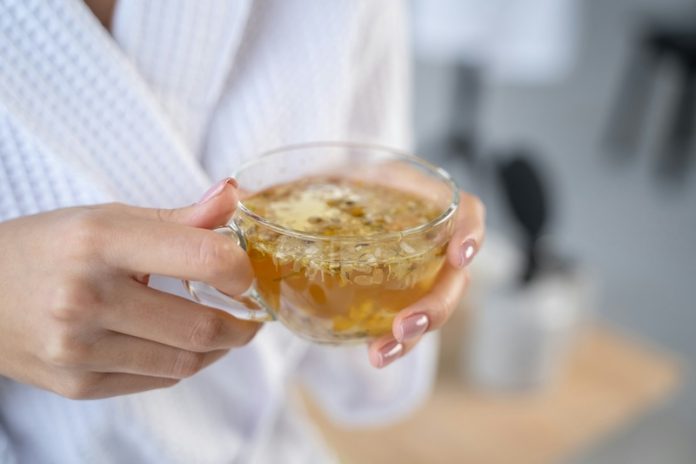
In our quest for a healthy heart and a peaceful mind, the answer might just lie in a warm, soothing cup of herbal tea.
Herbal teas have been celebrated for centuries for their health benefits, including their potential to lower high blood pressure, a condition affecting millions worldwide.
This article explores the comforting world of herbal teas and their effectiveness in managing blood pressure.
High blood pressure, or hypertension, is often dubbed the “silent killer” because it sneaks up without symptoms, yet it can lead to serious heart issues. In the search for natural remedies, many have turned to herbal teas.
These teas come from the leaves, flowers, seeds, or roots of various plants, not to be confused with traditional teas like black or green tea.
They’re beloved not only for their flavors but also for their medicinal properties, including their ability to help lower blood pressure.
Research has started to back up what traditional medicine has known for ages: certain herbal teas can indeed play a role in reducing blood pressure. Let’s delve into some of the most studied and praised teas for this purpose.
Hibiscus Tea: This vibrant, tangy tea is made from the flowers of the hibiscus plant. Studies have found that hibiscus tea can significantly lower systolic blood pressure (the top number in a blood pressure reading).
The effect is thought to come from the tea’s high levels of antioxidants, which help relax the blood vessels.
Green Tea: While not technically an “herbal” tea, because it’s made from the leaves of the Camellia sinensis plant, green tea deserves a mention for its well-documented health benefits, including blood pressure reduction. It’s rich in catechins, antioxidants that can improve blood vessel function and lower blood pressure.
Chamomile Tea: Known for its calming effects, chamomile tea is often used as a sleep aid. Interestingly, its benefits may also extend to blood pressure management.
While direct research on chamomile tea and blood pressure is limited, its ability to reduce stress and improve sleep can indirectly benefit heart health.
Peppermint Tea: Peppermint tea is another herbal remedy with potential blood pressure-lowering effects.
It can relax the muscles of the body, including those in the cardiovascular system, which can help lower blood pressure. However, more research is needed to fully understand its impact.
Rooibos Tea: Rooibos, or red bush tea, hails from South Africa and is rich in antioxidants that can help reduce blood pressure. Some studies suggest that rooibos tea can improve heart health by reducing oxidative stress and improving blood pressure levels.
It’s important to note that while these teas can contribute to a healthy blood pressure, they should not replace prescribed medications or a healthy lifestyle.
Always consult with a healthcare provider before making significant changes to your diet or health regimen, especially if you have a history of heart disease or other medical conditions.
In conclusion, sipping on herbal teas can be a delightful and beneficial addition to your daily routine, offering a natural way to support heart health and lower blood pressure.
From the tangy zest of hibiscus to the calming embrace of chamomile, each cup offers a blend of tradition, taste, and therapeutic benefits.
So next time you’re brewing a pot of tea, remember that it’s not just a beverage—it’s a gentle, natural step towards a healthier heart.
If you care about high blood pressure, please read studies that early time-restricted eating could help improve blood pressure, and natural coconut sugar could help reduce blood pressure and artery stiffness.
For more information about blood pressure, please see recent studies about added sugar in your diet linked to higher blood pressure, and results showing vitamin D could improve blood pressure in people with diabetes.
Copyright © 2024 Knowridge Science Report. All rights reserved.



